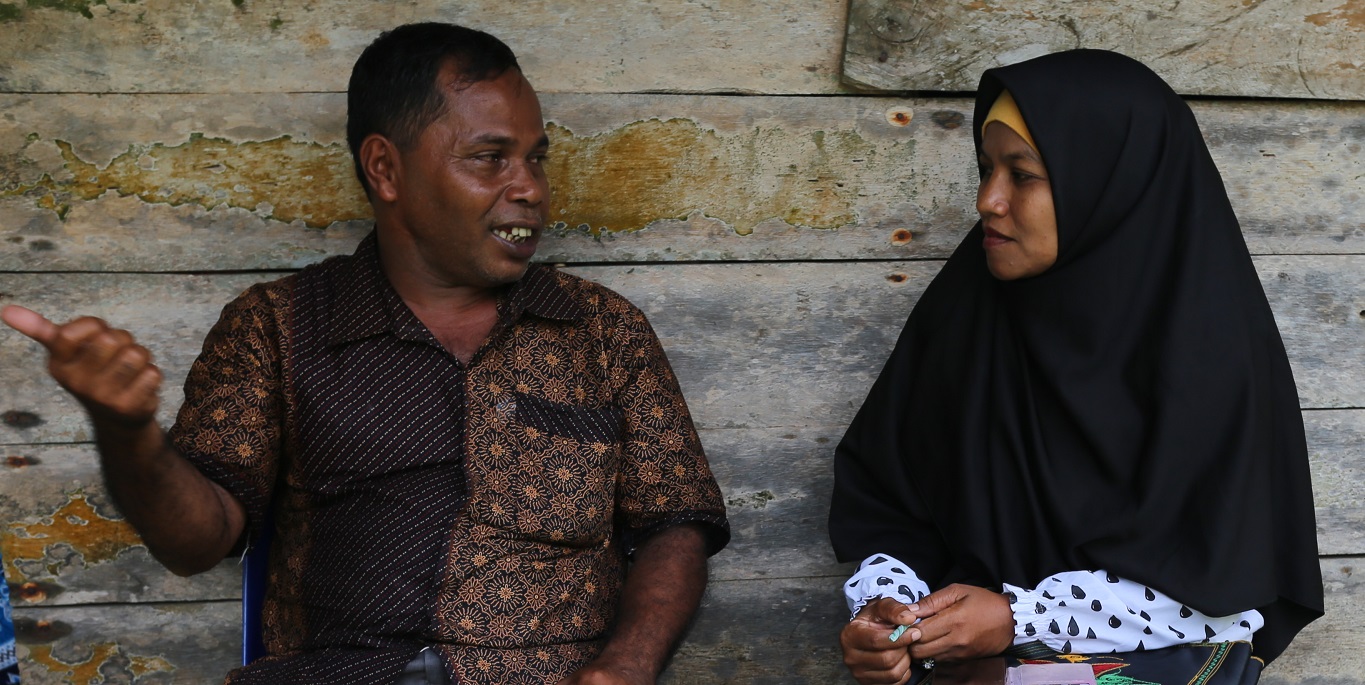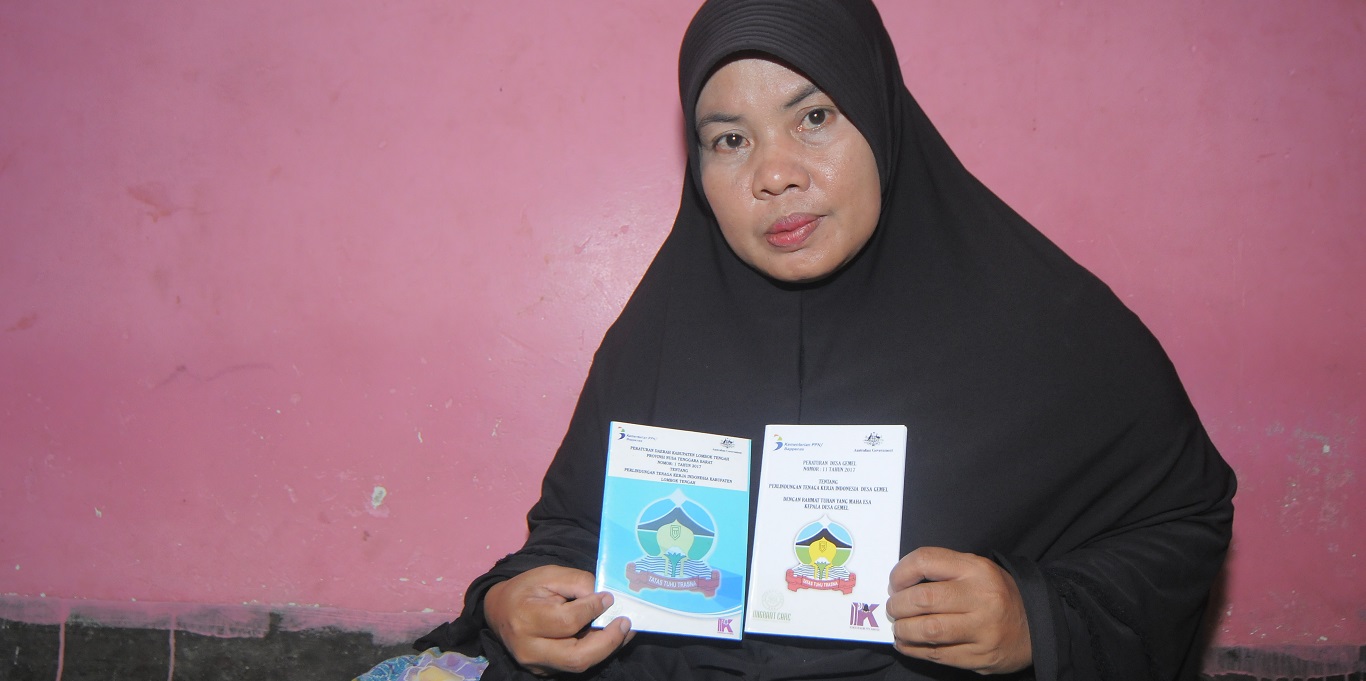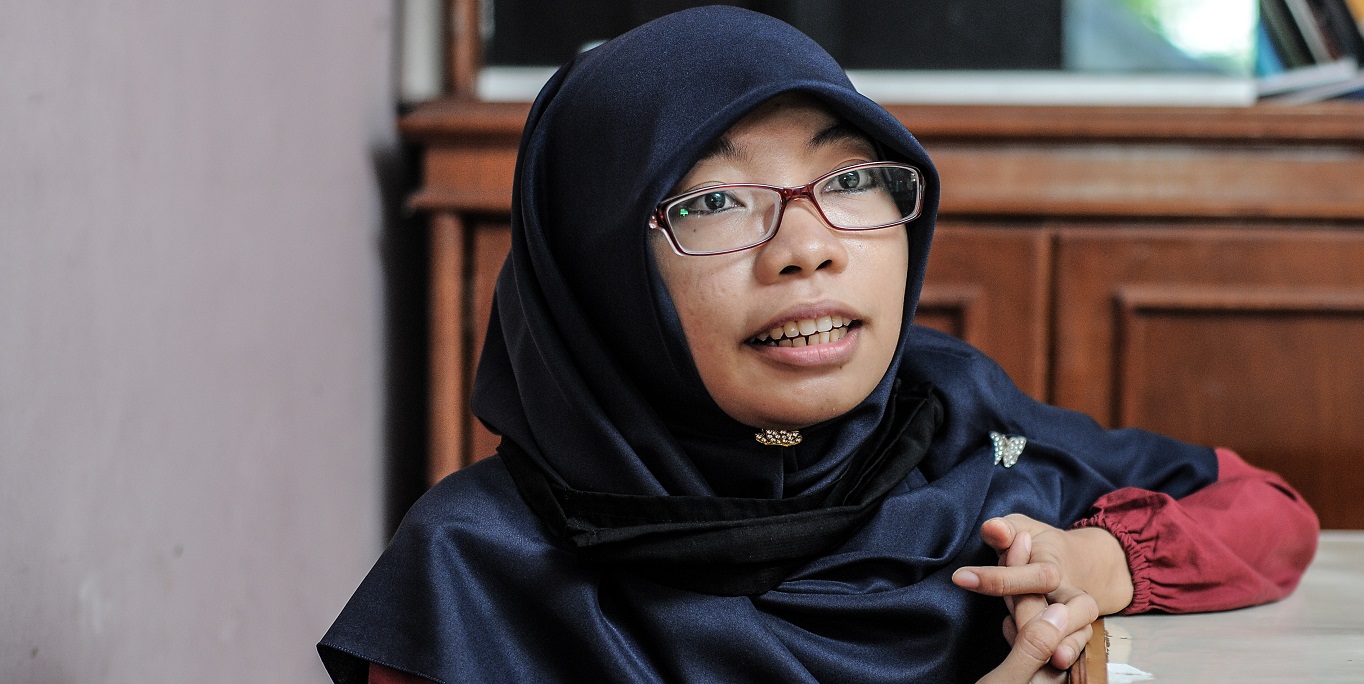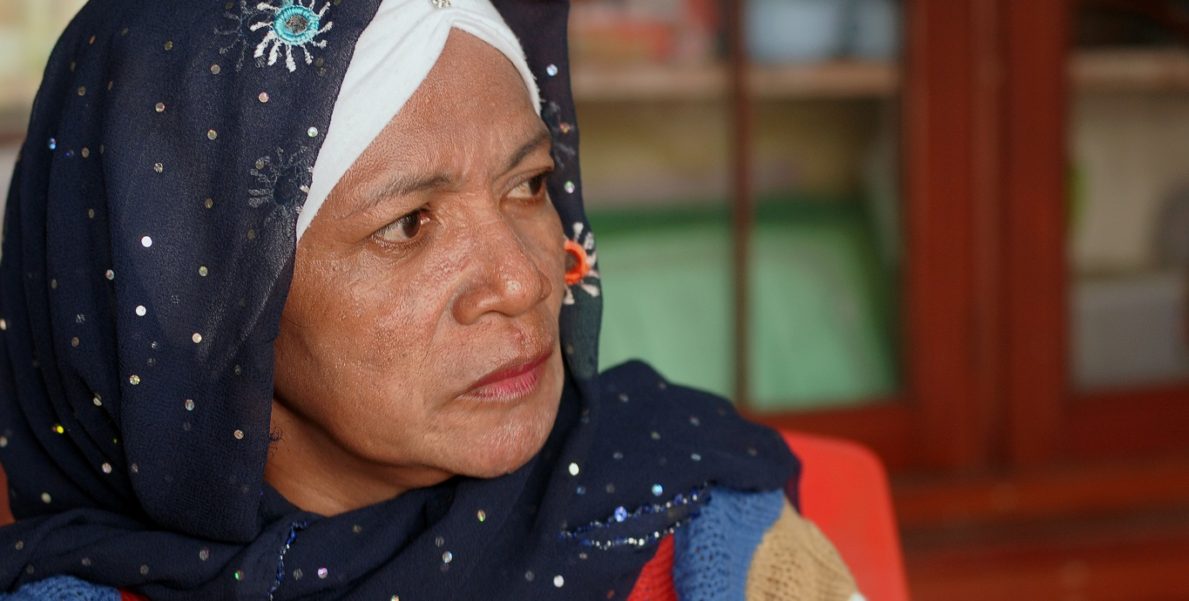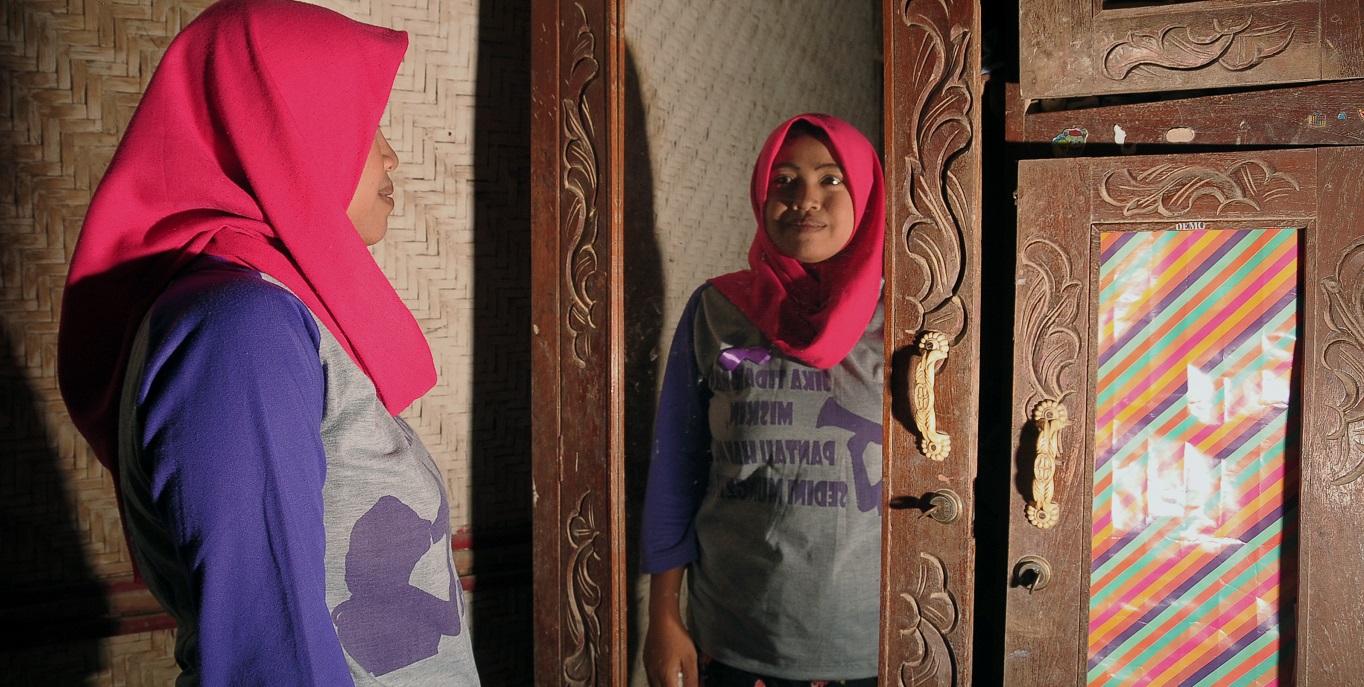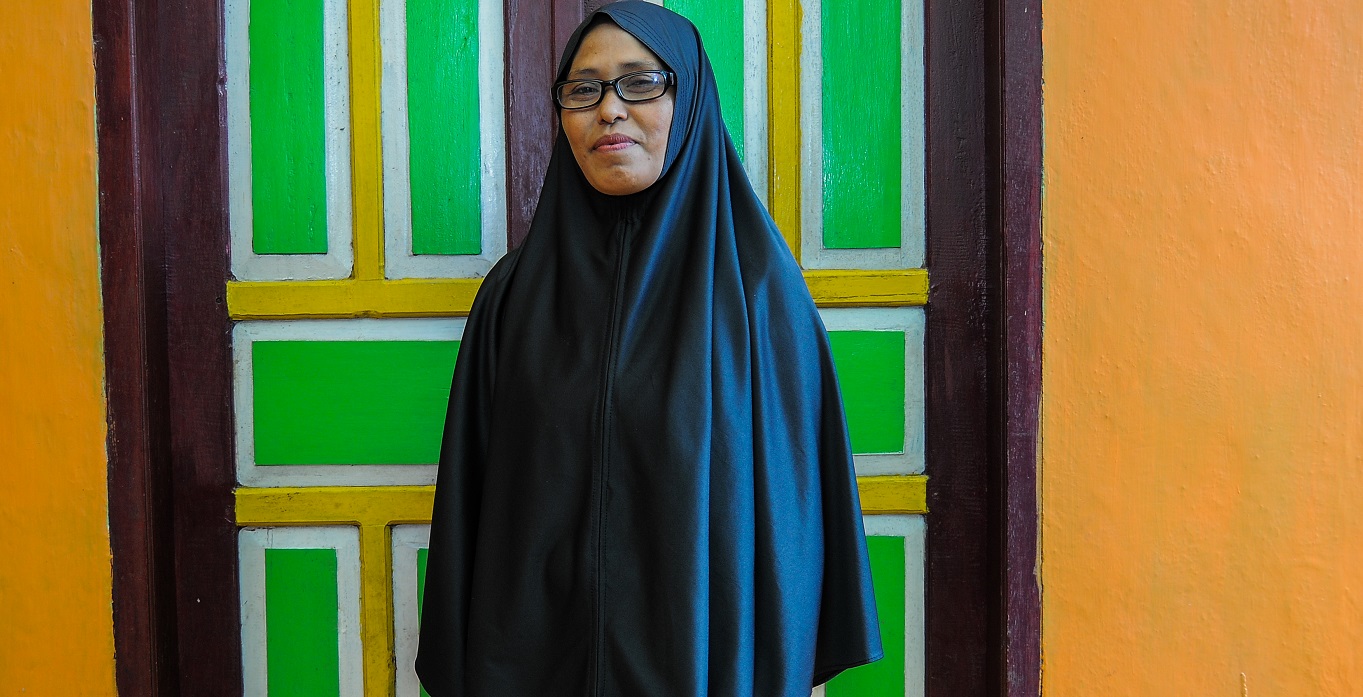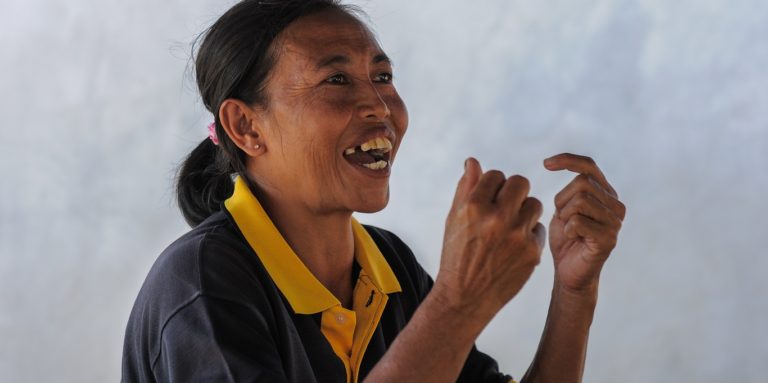Stories
An Embroidery Home worker Improve Her Life Through MWPRI
31 December 2015Penulis: admin
Uswatun Hasanah works three to four jobs at the same time. She runs a warung(food stall) in front of her house which sells chicken noodles and also petrol for motorcycles; she works as a tailor, receiving orders from neighbours and other customers; she works as a home worker, producing embroidery that will later be sewn to shoes; and she provides catering services upon request, usually during feasts and holidays. Her husband works as a truck driver, but only gets work when there are goods to deliver. Hasanah, her husband, and their two daughters of 17 and 13 years of age, live in a modest house in Kedung Rejo village in Pakis Sub-district, Malang District.
From all of the jobs that Hasanah and her husband have, the family income is around IDR 1.500.000 (AUD$ 150) per month. This is below the district’s minimum wage of IDR 1.635.000 (AUD$ 163) and barely sufficient to support their family. The daughters are in school, but other basic needs must be put aside. The family does not participate in any social protection programs, including BJPS Kesehatan, the revamped and praised government health protection scheme. When asked why she did not access the BPJS, Hasanah explained that the minimum subscription fee of IDR 25.000 (AUD$ 2.5) per month per person is needed for food and school instead.
In her job as a home worker, Hasanah completes 20-30 pieces of embroidery (each for a pair of shoes) per month. Her employer drops off the thread at the beginning of every month and picks up the finished work from the previous month. Earning IDR 8.000 (AUD 80c) per pair, she gets paid IDR160.000-240.000 (AUD$ 16 – 24) per month. If a piece of work does not meet the required standard, she has to replace it with a new one without being provided with additional thread. Hasanah—and other women who do the same work—have never been provided with any kind of training by their employers. They are, from the beginning, expected to already have the required embroidery skills.
Hasanah is a member of a home workers group organized by Mitra Wanita Pekerja Rumahan Indonesia (MWPRI), a local NGO which operates in East Java, one of MAMPU partners.
She has been a home worker in the garment industry for 8 years. In the first 6 years, she produced embroidery for Muslim veils for which she was paid IDR12.000 (AUD$ 1.20) per piece. Unfortunately, this work was terminated by the employer. Since 2012, she has produced embroidery for shoes at a lower fee. In the first year, she was paid only IDR 6,000 (AUD 60c) per pair. Entering the second year, Hasanah negotiated with her employer for a higher fee.
“I am the one who asked for a raise, from IDR6.000 (AUD 60c) to IDR10.000(AUD$ 1), explaining that prices in general had risen and I’d worked for some years already. At first she, the employer, said no, but then we discussed it. She finally agreed to increase the fee to IDR 8.000 (AUD 80c) per pair… I did this myself. I know I was being brave.”
Hasanah found the courage to do this with the support of MWPRI, from which she learned that negotiating is possible if one presents justifications and explanations.
In addition to agreeing to a raise, her employer was also willing to loan Hasanah IDR 2million (AUD$ 200) as start-up capital for her warung, with no interest or time limit, just as long as she kept up the embroidery work. The idea of opening a small business came to her after participating in an entrepreneurship course organized by MWPRI.
“The money from making embroidery is not sufficient to support my family, so I had to do something else. I participated in MWPRI’s entrepreneurship class and thought that I could sell something. I am lucky that my employer is a good person. I asked her for a loan and she was willing to give it to me. Now, I sell chicken noodles and petrol. Well, I do not make much money from the warung, but what I do make from it is used to give my children some pocket money.”Hasanah may indeed be lucky to have an accommodating and understanding employer, a rare situation among home workers.
Hasanah is a women with many goals whose efforts are continuous. She hopes to send her oldest daughter to a university in Jakarta where the tuition is free, but the living costs will be expensive. She also wishes she could make and sell her own line of shoes in the future, not just supplying the embroidery. In the process, Hasanah will continue being actively involved in capacity building activities organized by MWPRI.
Documented by Hirania Wiryasti (ILO-MAMPU)



